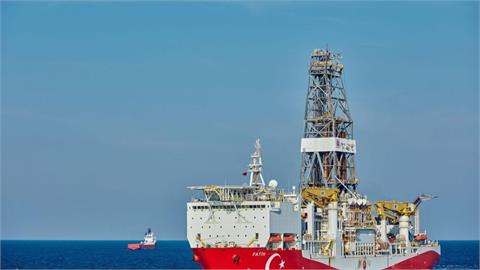The copious amounts of natural gas found in the East Mediterranean Sea could face challenges in its transfer to European markets because of potential competition with additional gas on the global market from the U.S., Australia and Qatar and with ongoing political tension in the region, head of the International Energy Agency (IEA) said Tuesday.
With the discovery of around 10-15 trillion cubic meters of natural gas and around 1.5-3.5 billion barrels of oil, as estimated by U.S. Geological Survey, discussions have ensued on how this East Mediterranean gas will impact the global market.
The survey also estimates the potential for around 10 trillion cubic meters of "undiscovered" natural gas reserves.
Speaking exclusively to Anadolu Agency in Hamburg, Fatih Birol, president of the IEA warned that these new discoveries would also face competition from other players in the global market that will make ample natural gas available within five years.
"In the following five years, the new natural gas need will be also met by countries like the U.S., Australia and Qatar," he stated.
As a result, Birol suggested that countries like Israel and Egypt located in the region could consume Mediterranean natural gas for domestic purposes.
He identified these countries and others [Israel, Greek Cypriot administration, Turkish Republic of Northern Cyprus, Egypt, Turkey] in the midst of the rich natural gas reserves in the Mediterranean as both lucky and unlucky at the same time. Birol explained that these countries can be considered lucky based on the fact that they have such enormous amounts of natural gas, but on the other hand, within the next five years, he said the global market will see the entry of huge amounts of natural gas from the U.S., Australia and Qatar, which could put a downward pressure on natural gas prices.
He said countries, like Turkey, which are dependent on imported natural gas, would benefit from this more competitive pricing.
- Politically tension in Cyprus
In mid-September, the Greek Cypriot administration on the Cyprus Island and Egypt signed an agreement for the construction of an underwater pipeline to export East Mediterranean natural gas from the island to Egypt.
After the announcement, on Sept. 20, the Turkish Deputy Prime Ministry and the Foreign Ministry described the move as an attempt to usurp the rights of the Turkish Cypriot people on the island, adding in a statement that, "the Greek Cypriot side does not have the jurisdiction to dispose like this about the future of these resources which also belong to Turkish Cypriots."
The Cyprus Island was divided into a Turkish Cypriot state in the north and a Greek Cypriot administration in the south after 1974 military coup was followed by violence against the island’s Turkish people, and Turkey’s intervention as a guarantor power.
Negotiations over Cyprus resumed after a 2004 UN-backed Annan Plan to reunify the Turkish Cypriot and Greek Cypriot communities. The reunification talks -- brokered by UN Special Cyprus Envoy Espen Barth Eide -- were launched in May 2015 to discuss a permanent settlement for the divided Mediterranean island.
The status of the island remains unresolved in spite of a series of discussions that resumed in May 2015.
There has been an on-and-off peace process over recent years, the latest failed initiative having taken place in Crans-Montana, Switzerland in July 2017 under the auspices of guarantor countries Turkey, Greece and the U.K., collapsing earlier this year.
(Anadolu Agency)



